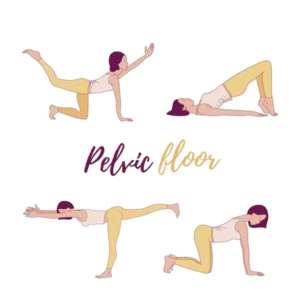
In the bustling world we inhabit, seeking moments of inner peace and self-discovery has
become a universal aspiration. Yoga, an ancient practice originating in India, has emerged as a
powerful philosophy and lifestyle that offers a pathway to achieve such goals. Beyond its
physical postures and exercises, yoga encompasses a profound philosophy that unites the
mind, body, and spirit, fostering a harmonious and balanced existence. In this blog, we will delve
into the core principles of the philosophy of yoga, its historical roots, and the transformative
impact it can have on our lives.
The Historical Roots of Yoga
Yoga’s origins can be traced back thousands of years to ancient India, where it evolved as a
comprehensive system for achieving self-awareness, self-mastery, and spiritual growth. The
earliest recorded mention of yoga dates back to the ancient sacred texts known as the Vedas.
Over time, various schools of thought and philosophical traditions contributed to the
development of yoga philosophy, resulting in a diverse and rich tapestry of teachings.
The Eight Limbs of Yoga
Central to the philosophy of yoga are the Eight Limbs, as outlined by the sage Patanjali in the
Yoga Sutras. These limbs provide a comprehensive framework for leading a balanced and
purposeful life, guiding practitioners towards self-realization and union with the divine.
The Eight Limbs consist of:
1. Yamas (Ethical Principles): These are moral guidelines that encompass virtues such as
non-violence (ahimsa), truthfulness (satya), and self-discipline (tapas).
2. Niyamas (Self-Discipline): Niyamas focus on personal observances, including purity (saucha),
contentment (santosha), and self-study (svadhyaya).
3. Asanas (Physical Postures): The physical aspect of yoga involves practicing postures that
enhance flexibility, strength, and balance, promoting overall physical well-being.
4. Pranayama (Breath Control): The regulation of breath helps control life force energy (prana),
promoting mental clarity and vitality.
5. Pratyahara (Withdrawal of the Senses): Pratyahara encourages turning inward by detaching
from external stimuli, facilitating concentration and meditation.
6. Dharana (Concentration): Concentration techniques cultivate focus and single-pointed
attention, paving the way for deep meditation.
7. Dhyana (Meditation): Meditation is the practice of sustained mental focus, leading to profound
insights and inner peace.
8. Samadhi (Union with the Divine): Samadhi represents the culmination of the yogic journey,
where the practitioner experiences a state of blissful oneness with the universe.
The Concept of Union (Yoga)
At its core, yoga means “union” or “to yoke.” It emphasizes the integration of the individual self
(jivatman) with the universal consciousness (paramatman) or divine source. This union is not
limited to the physical or mental realms but extends to a deeper spiritual connection that
transcends the boundaries of the self.
Yoga as a Path to Self-Realization
Yoga philosophy holds that the true purpose of human life is to realize one’s true nature and
potential. Through the practice of self-discipline, self-awareness, and selflessness, individuals
can overcome the illusion of separateness and recognize their interconnectedness with all of
existence.
Benefits Beyond the Mat
While yoga is often associated with physical postures, its philosophy extends far beyond the
confines of a yoga mat. By embracing the principles of yoga, individuals can cultivate
mindfulness, manage stress, enhance emotional well-being, and develop a deeper
understanding of their own thoughts and behaviors.
The philosophy of yoga offers a profound and holistic approach to life, guiding practitioners
toward a state of balance, harmony, and self-realization. Rooted in ancient wisdom and
enriched by centuries of practice, yoga’s principles provide a roadmap for navigating the
complexities of the modern world while nurturing a deeper connection to our inner selves and
the universe at large. Whether one’s journey involves physical postures, meditation, or ethical
living, the philosophy of yoga invites us to embark on a transformative path of self-discovery and
spiritual growth.



